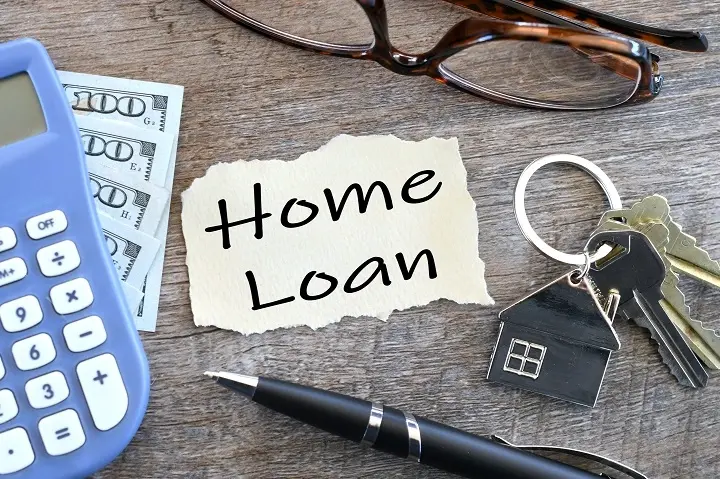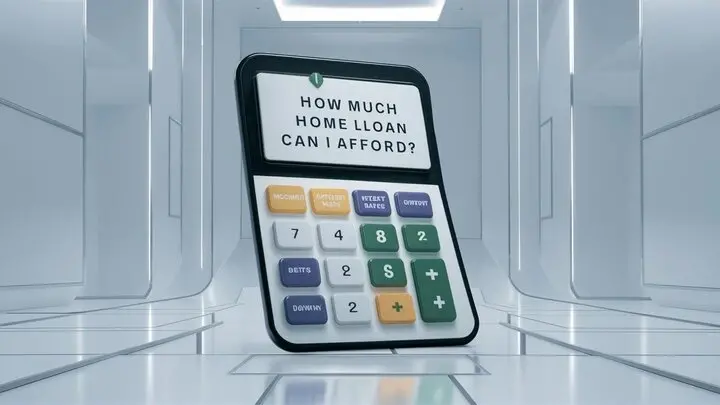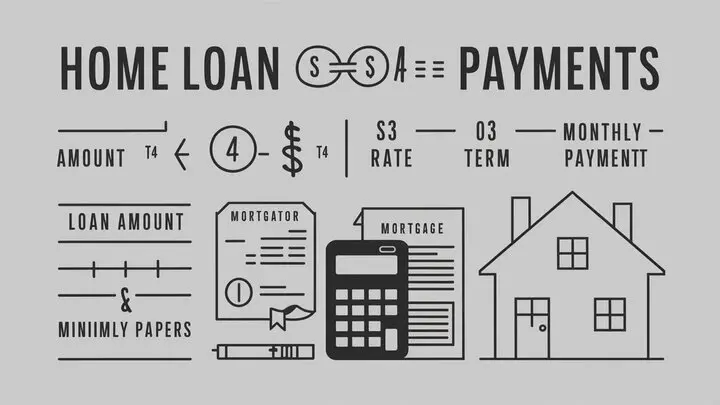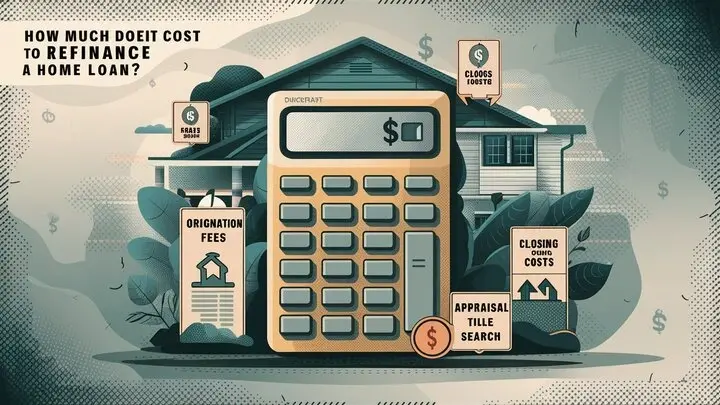-
Posted on: 19 Jan 2024

-
Buying a house is a significant milestone, and understanding the different types of loans available is crucial for a smooth and successful home buying journey. The world of mortgages can seem daunting, with a plethora of acronyms and complex terms. This comprehensive guide will break down the most common types of loans, helping you understand their features, benefits, and eligibility requirements. Choosing the right loan can save you thousands of dollars over the life of the loan and ensure you're in a comfortable financial position as a homeowner.
Understanding the Basics of Home Loans
Before diving into the specific types of loans, let's cover some fundamental concepts.
- Principal: The amount of money you borrow from the lender.
- Interest Rate: The percentage the lender charges you for borrowing the money. Interest rates can be fixed (stay the same for the loan's duration) or adjustable (change periodically based on market conditions).
- Loan Term: The length of time you have to repay the loan (e.g., 15 years, 30 years).
- Down Payment: The amount of money you pay upfront towards the purchase price of the house.
- Closing Costs: Fees associated with the loan, including appraisal fees, title insurance, and loan origination fees.
- Private Mortgage Insurance (PMI): An insurance policy that protects the lender if you default on your loan. PMI is typically required when you put down less than 20% of the home's purchase price.
- Escrow Account: An account held by the lender to pay for property taxes and homeowners insurance. The lender collects these payments as part of your monthly mortgage payment.
Types of Home Loans
1. Conventional Loans
Conventional loans are mortgages that are not insured or guaranteed by a government agency. They are offered by private lenders such as banks, credit unions, and mortgage companies. Conventional loans are typically a good option for borrowers with good credit scores and a solid down payment.
Key Features of Conventional Loans:
- Credit Score Requirements: Generally require a credit score of 620 or higher.
- Down Payment: Typically require a down payment of at least 3%, but 20% is preferred to avoid PMI.
- PMI: Private Mortgage Insurance is required if the down payment is less than 20%. PMI can be canceled once you reach 20% equity in the home.
- Loan Limits: There are conforming loan limits set by Fannie Mae and Freddie Mac. Loans exceeding these limits are considered "jumbo loans."
- Interest Rates: Interest rates are influenced by factors like credit score, down payment, and the overall economic climate.
Types of Conventional Loans:
- Fixed-Rate Mortgage: The interest rate remains the same for the entire loan term, providing predictable monthly payments.
- Adjustable-Rate Mortgage (ARM): The interest rate is fixed for a certain period (e.g., 5 years) and then adjusts periodically based on an index, such as the Prime Rate or LIBOR (though LIBOR is being phased out). ARMs can offer lower initial interest rates but come with the risk of rate increases.
2. FHA Loans
FHA loans are insured by the Federal Housing Administration (FHA), making them a popular choice for first-time homebuyers and those with less-than-perfect credit. FHA loans typically have more lenient requirements than conventional loans.
Key Features of FHA Loans:
- Credit Score Requirements: Can be approved with a credit score as low as 500, though a higher down payment might be required. A credit score of 580 or higher generally allows for the minimum down payment.
- Down Payment: Minimum down payment of 3.5% for borrowers with a credit score of 580 or higher.
- Mortgage Insurance Premium (MIP): FHA loans require both an upfront mortgage insurance premium (paid at closing) and an annual mortgage insurance premium (paid monthly). Unlike PMI on conventional loans, MIP is typically required for the life of the loan, regardless of equity, for loans originated after 2013 with terms longer than 15 years and loan-to-value ratios greater than 90%.
- Debt-to-Income Ratio (DTI): FHA loans are more forgiving on DTI than conventional loans, but lenders still look for responsible debt management.
- Property Requirements: FHA has specific property requirements to ensure the home is safe and habitable.
Benefits of FHA Loans:
- Lower credit score requirements.
- Lower down payment options.
- More flexible DTI requirements.
3. VA Loans
VA loans are guaranteed by the U.S. Department of Veterans Affairs (VA) and are available to eligible veterans, active-duty military personnel, and surviving spouses. VA loans offer significant benefits, including no down payment and no private mortgage insurance.
Key Features of VA Loans:
- Eligibility: Requires a Certificate of Eligibility (COE) from the VA.
- No Down Payment: Typically require no down payment.
- No PMI: No private mortgage insurance is required.
- Funding Fee: A funding fee is charged, which can be financed into the loan. The funding fee varies depending on the borrower's military category, down payment amount, and whether it is their first time using a VA loan.
- Loan Limits: VA loans generally follow the conforming loan limits set by Fannie Mae and Freddie Mac, but eligible veterans can often borrow above these limits without a down payment.
- Flexible Requirements: VA loans often have more flexible credit score and DTI requirements than conventional loans.
Benefits of VA Loans:
- No down payment required.
- No private mortgage insurance required.
- Competitive interest rates.
- Flexible credit score and DTI requirements.
4. USDA Loans
USDA loans are guaranteed by the U.S. Department of Agriculture (USDA) and are designed to help low- to moderate-income individuals purchase homes in eligible rural areas. USDA loans offer no down payment and low interest rates.
Key Features of USDA Loans:
- Eligibility: Requires meeting income limits and purchasing a home in a USDA-eligible rural area. The USDA defines "rural" broadly, and many suburban areas qualify.
- No Down Payment: Typically require no down payment.
- Guarantee Fee: USDA loans require an upfront guarantee fee and an annual guarantee fee.
- Income Limits: Borrowers must meet specific income limits, which vary by location.
- Property Requirements: The property must meet USDA eligibility requirements.
Benefits of USDA Loans:
- No down payment required.
- Low interest rates.
- Helps individuals purchase homes in rural areas.
5. Jumbo Loans
Jumbo loans are mortgages that exceed the conforming loan limits set by Fannie Mae and Freddie Mac. These loans are typically used to finance high-end properties and require excellent credit and a substantial down payment.
Key Features of Jumbo Loans:
- Loan Amount: Exceeds conforming loan limits.
- Credit Score Requirements: Requires excellent credit, typically 700 or higher.
- Down Payment: Requires a substantial down payment, often 20% or more.
- Documentation: Requires extensive documentation to verify income and assets.
- Higher Interest Rates: Often have higher interest rates than conforming loans.
6. Fixed-Rate vs. Adjustable-Rate Mortgages (ARMs) - A Deeper Dive
As mentioned earlier, both conventional loans and other loan types can come in fixed-rate or adjustable-rate varieties. The choice between these depends heavily on your risk tolerance, financial situation, and expectations for future interest rates.
Fixed-Rate Mortgage Advantages:
- Predictability: Payments remain the same for the life of the loan, making budgeting easier.
- Stability: Protects you from rising interest rates.
Fixed-Rate Mortgage Disadvantages:
- Potentially Higher Initial Rate: Fixed rates may be slightly higher than initial ARM rates.
- Lack of Flexibility: You won't benefit if interest rates fall.
Adjustable-Rate Mortgage (ARM) Advantages:
- Lower Initial Rate: Typically offer lower initial interest rates, potentially saving you money in the early years of the loan.
- Potential for Lower Payments: If interest rates fall, your payments will decrease.
Adjustable-Rate Mortgage (ARM) Disadvantages:
- Rate Volatility: Your interest rate and payments can increase, potentially significantly, if interest rates rise.
- Complexity: ARMs can be more complex to understand than fixed-rate mortgages.
Choosing the Right Loan for You
Selecting the right type of loan requires careful consideration of your individual circumstances. Consider the following factors:
- Credit Score: Your credit score significantly impacts your interest rate and loan eligibility.
- Down Payment: The amount of your down payment affects your loan options and whether you'll need to pay PMI or MIP.
- Income and Debt: Lenders will assess your income and debt to determine your ability to repay the loan.
- Financial Goals: Consider your long-term financial goals and how the loan will fit into your overall financial plan.
- Risk Tolerance: Assess your comfort level with fluctuating interest rates if considering an ARM.
- Property Location: If considering a USDA loan, ensure the property is located in an eligible area.
- Military Service: If you are a veteran or active-duty military personnel, explore the benefits of VA loans.
It's recommended to speak with a mortgage lender to discuss your options and get pre-approved for a loan. Pre-approval will give you a better understanding of how much you can afford and strengthen your offer when you find the right home.








